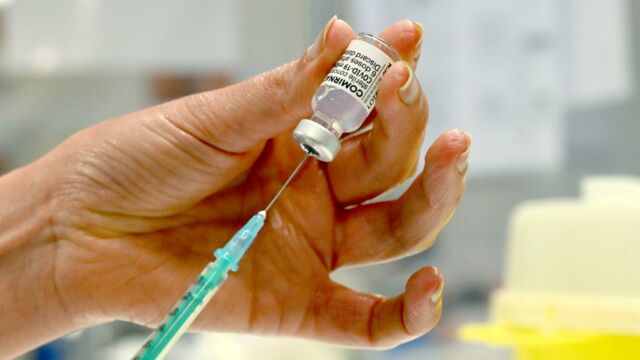The research team from Kings College London analysed the data of over two million people who had logged their symptoms, coronavirus tests and vaccine statuses on the ZOE COVID Symptom Study app between the 8th of December 2020 and the 4th of July 2021.
Discover our latest podcast
Of the data analysed, 6,030 people had become infected with COVID at least 14 days after their first vaccine dose, while a further 2,370 people tested positive for the virus within seven days after their second jab. But the research also showed that those who were double jabbed were only 49% as likely to experience symptoms lasting 28 days or longer.
The study’s findings were published in The Lancet revealed: ‘We found that the odds of having symptoms for 28 days or more after post-vaccination infection were approximately halved by having two vaccine doses.’
This result suggests that the risk of long COVID is reduced in individuals who have received double vaccination, when additionally considering the already documented reduced risk of infection overall.
Results overwhelmingly in favour of double vaccination
Researchers only observed the data from those who had received the Pfizer or AstraZeneca vaccines, and both showed similar results.
Those who had received both of their coronavirus vaccineswere less likely to experience almost all virus symptoms and were more likely to have an asymptomatic infection.
Fully vaccinated people that did experience COVID symptoms were similar to those seen in unvaccinated people, such as a persistent cough, a loss of taste and smell, fever, headaches and fatigue, with sneezing being the only symptom more common in vaccinated people. However, these symptoms were often milder in those who had both jabs, and they were only half as likely to experience multiple symptoms simultaneously in the first week.
Results also showed that fully inoculated people were also 73% less likely to require hospital attention and were 31% less likely to experience acute symptoms.
Those in deprived areas are more vulnerable to COVID after first dose
Unfortunately, Kings College London researchers also found that those who lived in deprived areas were at greater risk of COVID infection after their first vaccine dose.
The study concluded that age wasn’t a factor but that those with underlying health conditions were almost twice as likely to develop symptomatic COVID infections after their first dose.
Lead researcher Dr Claire Steves summarised the study’s findings, stating that it was good news that being fully vaccinated ‘significantly reduces the risk of both catching the virus and, if you do, [of] developing long-standing symptoms.’
Among our frail, older adults and those living in deprived areas the risk is still significant, and they should be urgently prioritised for second and booster vaccinations.
Results of the study come not long after the JCVI and Health Secretary Sajid Javid declared almost half a million Brits with an impaired immune system would be offered a third coronavirus vaccine at the discretion of their GPs. The third jab was said not to be part of a COVID booster programme but will be considered part of the primary vaccine schedule for vulnerable residents.















